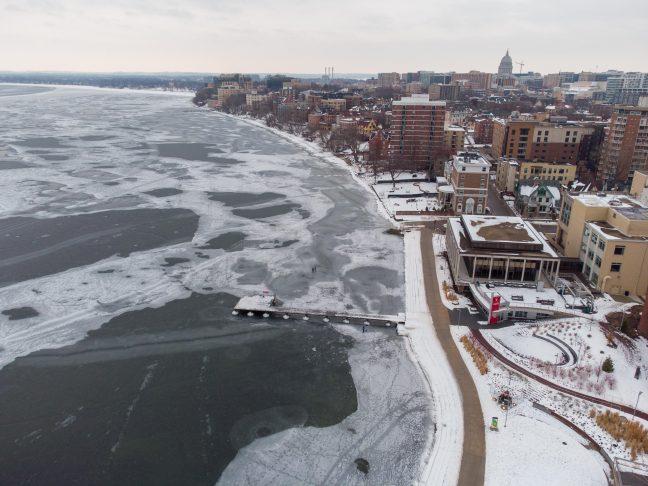The shower you took this morning could be detrimental to your health.
Approximately 68% of Wisconsin residents rely on groundwater to supply their homes — groundwater that is susceptible to dangerous nitrate contamination (Mathewson et al., 2020). The Wisconsin Groundwater Coordinating Council found 47 of Wisconsin’s municipal water systems have nitrate levels exceeding the maximum contaminant level set by the Environmental Protection Agency (EPA). For the 70% of Wisconsin residents who get their water from state-regulated wells and facilities, these statistics are extremely startling.
What about water from private wells? That’s probably contaminated too. Wisconsin has one of the highest per capita private well usage rates in the country. These wells are sourced from the same nitrate-infected groundwater the state water systems also use.
Private well owners are not required to regularly test and treat their water, meaning it is most likely not up to par with the government’s already shaky water standards. According to the Wisconsin Department of Health Services, over 10% of private wells have what are deemed to be “high nitrate levels,” — another shocking statistic for the remaining 30% of the population who get their water from private wells.
The Wisconsin Department of Health Services found long-term exposure to nitrates in drinking water can result in colorectal cancer, thyroid disease, birth complications such as methemoglobinemia and various other adverse health effects. $23 to $80 million is spent on medical costs related to nitrate consumption annually in the state of Wisconsin alone (Mathewson et al., 2020).
Wisconsin’s polluted water supply is largely a result of the manure produced by factory farms — or concentrated animal feeding operations (CAFOs). Manure is commonly used as a fertilizer for fields, but it is often overapplied and becomes runoff when rainfall occurs. The runoff carries the nitrate-saturated manure to the streams, rivers and lakes from which our water is sourced.
Nitrate regulation is the key to saving one of Wisconsin’s most lucrative industries — and ourselves — from a nitrate-induced downfall. The DNR is currently working on creating updated rules on nitrates, which would create safer standards for manure application in areas sensitive to nitrate contamination.
Various business and industry groups have raised concerns these rules would be too expensive, but we must observe these claims with a critical eye. These claims often don’t take into account the savings that would accompany the decreasing medical expenses and preservation of local ecosystems that could occur as nitrate pollution decreases.
Additionally, the groups making these claims (such as the Wisconsin Manufacturers and Commerce or WMC) have a long history of fighting environmental regulations to avoid taking responsibility for polluting communities and ecosystems throughout the state.
Powerful agricultural lobbying groups such as the WMC have never hesitated to expose us to harmful pollutants, so why should we wait to stop them?
If you want to take action on nitrate pollution, reach out to your local legislators and let them know it’s an issue you care about — collective action leads to change.


